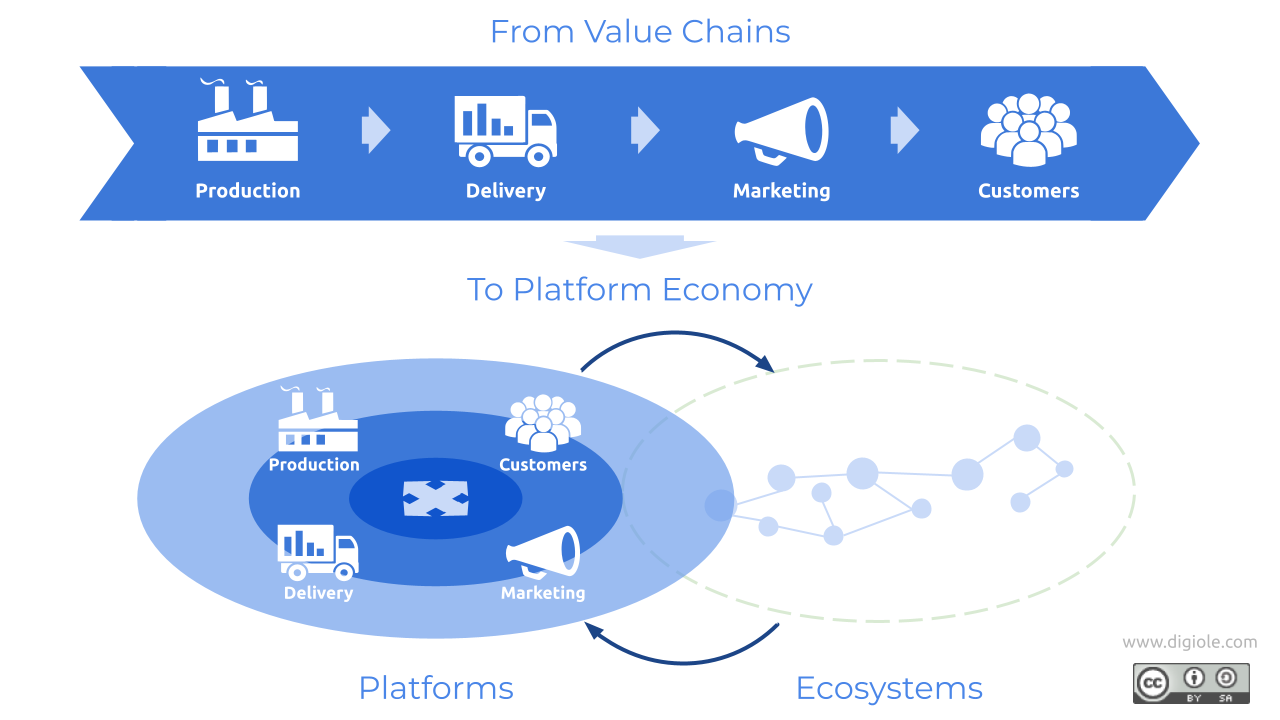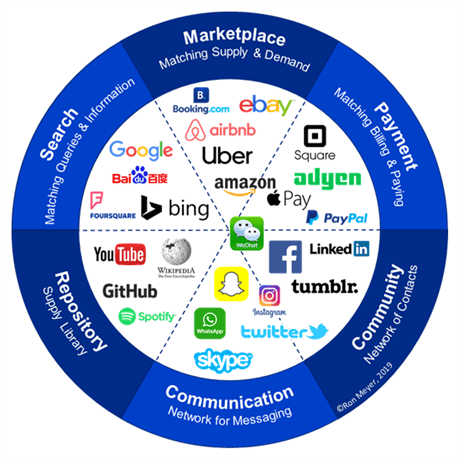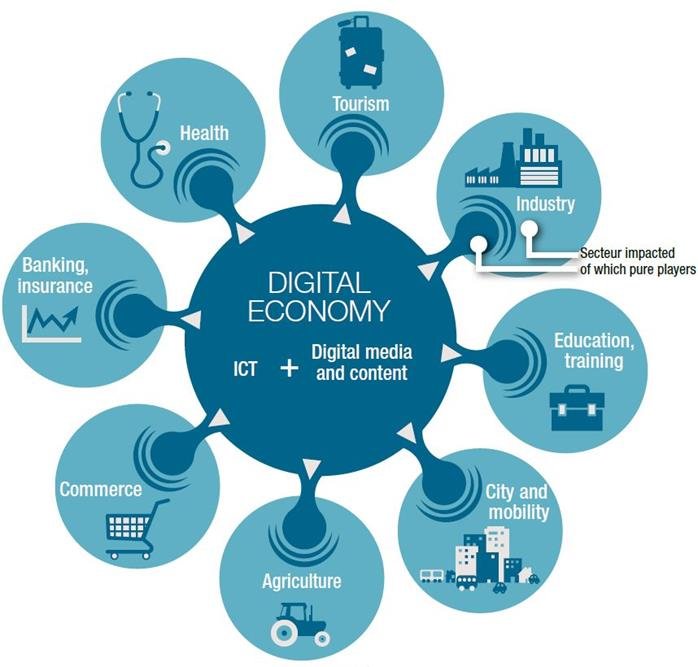Challenges of Digital Economic Platforms: Navigating the New Frontier
Imagine a world where you tap an app, and your work day begins. This is today’s gig economy, a realm of flexible jobs, but it’s not all clicks and cash. We’re diving deep into the challenges of digital economic platforms. From gig workers juggling jobs without clear employment status to the disruption shaking up traditional labor markets – it’s a tough landscape. Think your personal data is secure? Think again. In the digital age, privacy is a prize, and keeping it safe is no small feat. And then there’s the rulebook, or rather, the lack of one. Digital platforms tread a fine line with regulators watching their every move. But we’re not just spectators; we’re in this together. We’re tackling unfair play in the online marketplace and pushing for spaces where everyone gets a fair shot. Ready to navigate this new frontier with me? Let’s get started.
The Landscape of Labor in the Gig Economy
Exploring the Employment Status of Gig Workers
Gig workers are not full employees. They lack the perks and safety that come with regular jobs. They are often seen as independent contractors. This means no health insurance, no retirement plans, and no paid leave. The freedom they have comes with high risks and no job security.
Many gig workers have to manage unexpected job changes. They face hard times when there’s less work. They might not get enough money to cover their needs. Often, they must work more than one job to make ends meet. This can lead to a lot of stress and less time for themselves or their families.
Gig platforms say they offer chances for people to make money on their own terms. Yet, the reality can be tough for workers. They must cover their own costs, like cars and tools, and they pay more taxes. Some feel stuck in a cycle where they can’t earn more or move up in their jobs.
Labor Market Disruption and Gig Economy Concerns
The rise of the gig economy shakes up the labor market. On one side, it creates jobs that anyone with a car or a smartphone can get. But on the other side, it raises big questions about job safety and fair pay. The rules we have for work don’t always fit well with gig jobs. This leads to arguments about how we should treat gig workers.
People worry about how gig jobs affect the economy. These jobs can make it harder for workers to get loans or buy houses. They don’t always help workers build their futures. Some say gig jobs can help when times are tough, but shouldn’t be the only kind of work people do.
Gig jobs can be good for people who need flexible work. Think about parents, students, or artists. But we need to make sure these jobs are also fair. We should think about how to protect gig workers. They deserve safety at work, a good wage, and a chance to have a good future.
In the end, the question is: How can we make gig work better for everyone? We need to find a balance. Gig workers should have freedom and also protection. We must work together to make new rules that make sense for the way we work now. This will help everyone get the most out of this new world of work.
Protecting Privacy and Data in the Digital Realm
Managing User Data Exploitation and Privacy Issues
We all worry about who gets our personal info online. We sign up, click “I agree,” and hope for the best. But, truth be told, it’s a jungle out there in the digital realm. Companies look to make money, and sometimes our data is the price. Think about your latest online buy. Ever wondered how sites seem to know just what you like? That’s no accident. It’s your data at work.
So, how do we stay safe and keep our info private? Well, laws and rules help, but we must be careful too. Always check who you give your info to. And know this: some of these digital platforms, well, they don’t always play fair. They snatch up our data, often without us knowing. This is more than shady; it can hurt us big time if it gets in the wrong hands.
Now, let’s dig deeper into data privacy issues. What does that mean? Simply put, your private stuff should stay private. Your name, where you live, what you buy – it’s all yours, not theirs. When it’s shared without your say-so, that’s a no-go. But with great tech comes big responsibilities, and not just for us users. Companies big and small need to step up, make sure they’re not being sneaky with our info.
What can we call this sneaky business? User data exploitation. It’s when they take our data without being clear about it. They might sell it or use it in ways we wouldn’t like. This messes with our trust and can make us feel less safe online.
Digital Identity Verification and Consumer Protection Laws
Let’s look at something we all must face: proving who we are online. When we sign up for something new or buy stuff online, we need to show it’s really us. But how can we be sure no one else pretends to be us? That’s where digital identity verification kicks in. Websites ask us things only we should know, or they send codes to our phones.
But here’s the twist: while this keeps our accounts safer, it raises a new set of worries. What if this info gets stolen or misused? That’s scary, and it’s why we’ve got consumer protection laws. These laws are like a shield. They help fight off the bad actors and keep our digital selves secure.
Think of these laws as tough rules that online places have to follow. They say, “Hey, you must protect people’s info and play by the rules, or else.” The “or else” can mean big fines or other penalties. It’s good to know someone’s got our backs, right?
What about our part in all of this? It’s simple but crucial: be aware and be cautious. When online, take a moment to think, “Should I really give this info?” If something feels off, it’s okay to walk away. After all, protecting our digital self is up to each of us, as much as it’s up to the laws that watch over these digital spaces.
Regulatory Frameworks and Platform Accountability
Navigating Digital Platform Regulation and Antitrust Implications
In the world of tech, “big” often rings alarm bells. As digital platforms grow, they can edge out smaller players. We see this when a giant online store undercuts local sellers. It’s a classic story of David and Goliath, but in the digital age. This worry is at the heart of antitrust implications—laws that keep markets fair. Picture a game board. Antitrust laws make sure no player gets so big that they can move all the pieces any way they like.
But, keeping these rules up to speed with tech progress is tough. Lawmakers are racing against companies advancing every day. Each new feature or update might bring a new concern. Like, how do we stop a map app from favoring its owner’s restaurant over others? Or how do we make sure gig workers get the rights they deserve when the app they work for sees them as just another user? Our challenge is to create rules flexible enough to adapt, yet strong enough to protect what’s right.
Tackling Ethical Dilemmas and Platform Accountability in Tech
Now, let’s tackle a rough topic: ethical dilemmas in tech. So much power is packed into what we create. Picture an app that can guess what you want to eat before even you know. Helpful, right? But what if it starts nudging you towards foods that make it more money, even if they are not as healthy? Suddenly, the line between helpful and harmful gets blurry.
Tech ethics is about drawing those lines. It means tough questions like, “Just because we can, does it mean we should?” When it comes to users’ data, should a fitness app share your jogging routes if it helps them improve? Some might shrug and say “Why not?” But put on the brakes—it’s not just about routes.

Now you might wonder, “But how?” Well, it starts with us—lawmakers, strategists, and you. Yes, your voice counts! If you’ve ever been swamped with ads right after talking about shoes, it’s time to ask louder for privacy. And if you’ve wondered whether a freelance job will pay enough to make ends meet, then it’s time to ask for clearer rules. So, what’s the next step? Lawmakers are working on it. They’re drafting laws, like pencils sketching the blueprint of tomorrow’s tech world.
And there you have it—a look at the massive puzzle that is digital platform regulation and ethical tech. It’s all about balance, and we’re all part of the solution.
Ensuring Fair and Inclusive Digital Marketplaces
Overcoming Market Entry Barriers and Unfair Competition Online
New online shops face big hurdles today. They clash with huge companies for a spot. We must make sure they can join the market fair and square. Big players often use their power to stay on top. It’s tough for the little guys to keep up. We need rules to stop this from happening.
For fair online markets, we must look at digital platform regulation. These rules help keep the big companies in check. Without them, these giants could harm free trade online. It’s about keeping the balance online, making sure everyone has a fair chance.
Now, let’s talk about the digital divide. Not everyone has the tech they need to join in. We have to fix this. Let’s get tech into more hands. It’s about giving chances to all, no matter where they are. By doing this, we make sure everyone can play a part in our digital future.
When we talk about inclusion, we can’t ignore folks with disabilities. We have to build tech that’s easy for them to use. It’s not about charity; it’s about basic fairness. Everyone should be able to surf the web, work online, and enjoy digital life. This makes sure no user is left behind.
Promoting Accessibility and Reducing the Digital Divide Impact
Getting online should be easy for everyone. But for many, it’s not. We have folks who can’t afford the internet. We have folks who don’t know how to use it. This is the digital divide—when not everyone can join the tech world.
It’s on us to teach folks how to use tech. We should bring the internet to places it’s not. Every bit we teach, every connection we make, it helps. It’s about building bridges across this digital gap.
What about cybersecurity threats? They’re a big worry for everyone using the internet. We’ve got to keep people safe from hackers and scams. This takes good plans and smart thinking. When folks trust the web, they use it more. We all win then.
We should also talk about algorithm bias. It’s a real problem when computers treat people unfairly. We need smart people to keep an eye on these computers. They need to make sure no one is left out because of their race, money, or where they live. Fair play should be for everyone.
And we can’t forget about the folks in the gig economy. They work hard but often don’t get the same respect as others. We should treat them right, give them fair pay and benefits, just like any other job.
Let’s wrap it up now. We’ve got work to do to make digital spaces fair for everyone. If we stick together and keep our eyes on the prize, we can make it happen.
We’ve looked at the gig economy, how it changes jobs, and the worries it brings. We’ve also talked about keeping your private info safe online and how the law helps. Then, we’ve dug into rules for digital places and making sure they play fair. And we can’t forget about fair chances for all in the market, making sure everyone can join in.
My final take? The digital world is full of chances but comes with big concerns too. It’s up to us to stay sharp and make sure we keep it fair and safe for everyone. Let’s make sure we all get to win in the online game.
Q&A :
What are some common obstacles facing digital economic platforms?
Digital economic platforms often face a range of challenges, including regulatory hurdles as governments try to keep pace with the rapid development of digital services. Competition is fierce and keeping user trust and engagement can be difficult in an environment of increasing data privacy concerns. Additionally, the need for constant innovation and the management of cybersecurity threats are significant obstacles for these platforms.
How do data privacy concerns affect digital economic platforms?
With the rise of digital economic platforms, data privacy becomes a central concern. Users are becoming more aware of their digital footprints and the potential for their personal information to be misused. Platforms must navigate complex data protection laws, like GDPR in Europe, and implement robust privacy measures to maintain user trust and comply with regulations. Failure to do so may not only lead to legal consequences but also a loss of user confidence and a decline in platform participation.
Can digital economic platforms disrupt traditional marketplaces?
Digital economic platforms are indeed disruptive to traditional marketplaces by introducing new ways of delivering services and goods. This disruption can lead to increased efficiency and convenience but also poses challenges such as market monopolization, reduced face-to-face interactions, and the potential decline of brick-and-mortar stores. These platforms can alter the dynamics of work, emphasizing gig economy jobs, which might affect job security and benefits for workers.
What is the impact of cybersecurity threats on digital economic platforms?
Cybersecurity is a major concern for digital economic platforms, as they manage large amounts of sensitive user data and financial transactions. A breach can lead to significant financial losses, reduced user trust, and damage to the platform’s reputation. Platforms must invest in strong security measures and constantly update them to protect against emerging threats, which can be a costly and resource-intensive process.
How do regulatory challenges shape the development of digital economic platforms?
Regulatory challenges play a crucial role in shaping digital economic platforms. Governments are working to create frameworks that protect consumers and promote fair competition, while also trying not to stifle innovation. Platforms must be agile and compliant with laws that can vary greatly by region or country. This includes adherence to consumer protection, tax requirements, and labor laws which can be particularly complex for platforms with a global user base.


